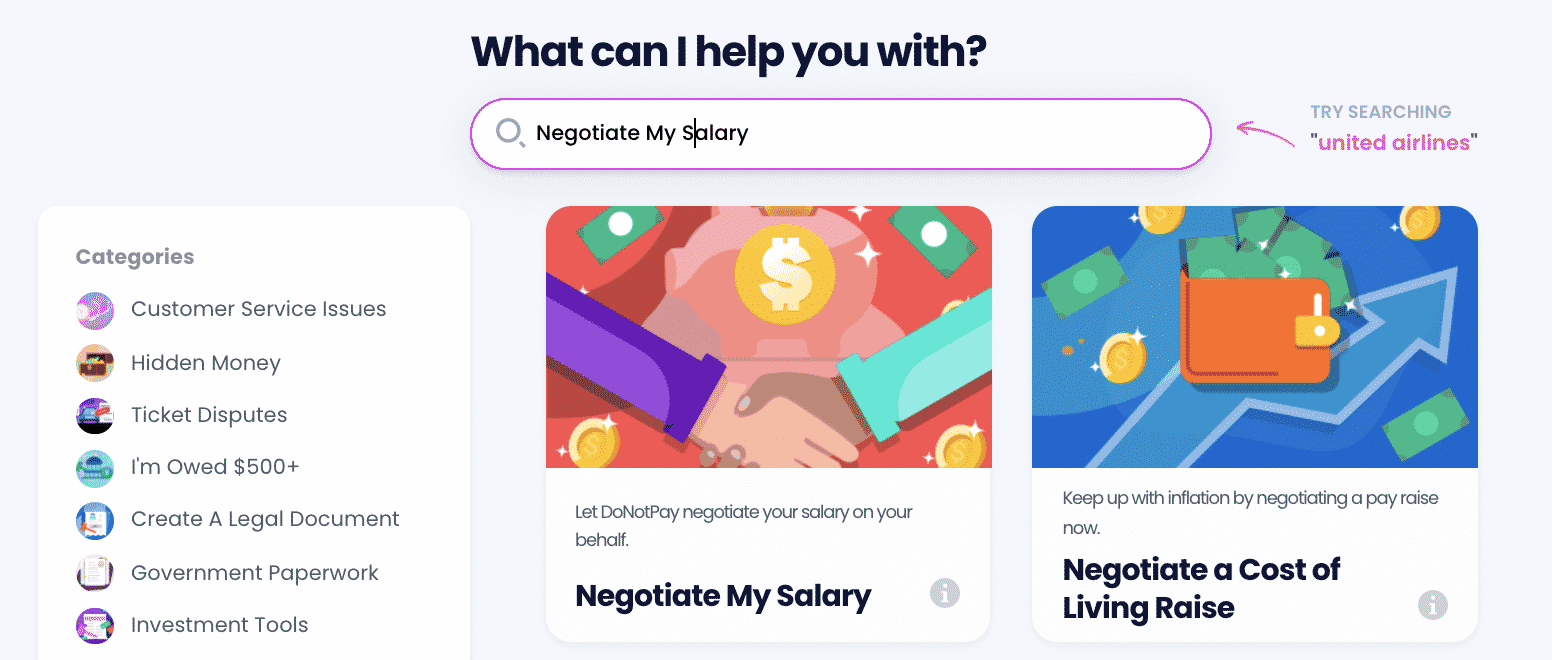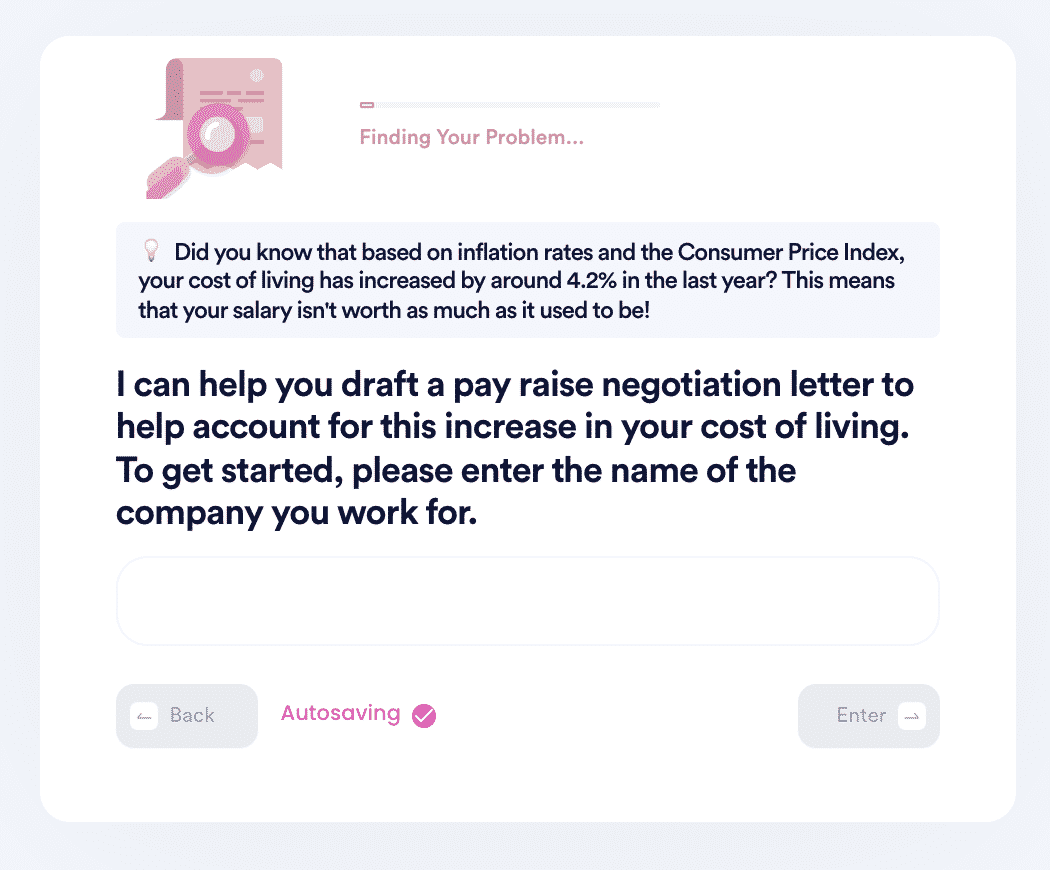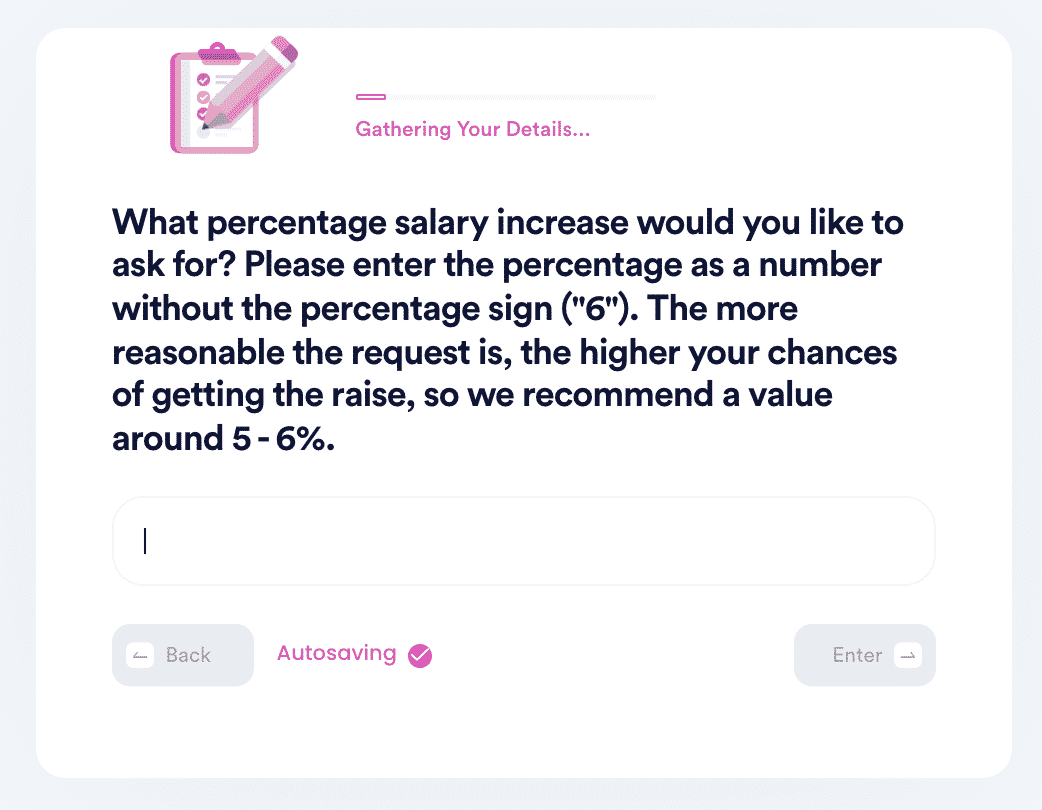Higher Base Salary vs. Bonus: Which Is Your Best Option?
Salary negotiations offer you multiple opportunities to change the payment structure. For example, you can choose to have an increased base salary or get a high bonus. Either way, you'll have an overall salary increment. But, should you focus on a when initiating a salary negotiation with your employer?
In any salary negotiation, go for a base salary increase first. This is because the base salary will remain unchanged long-term, while bonuses can fluctuate depending on the company's performance over a specified period.
While employers prefer bonuses to higher base salaries, you can negotiate your way into an increased base salary with the help of DoNotPay. Through DoNotPay's Negotiate Salary product, you generate an official salary negotiation letter that will impress your employer.
Higher Base Salary vs. Bonus – Which Is Better?
While negotiating your salary, any compensation's long-term importance and value should count. For example, a higher base salary doesn't change even when the company is experiencing a dip in performance. On the other hand, bonuses can be scraped off easily.
However, if you are negotiating for a base salary increase and you get a rejection, a would not be a bad thing to settle for. After all, something extra is better than nothing at all. Also, a bonus is a good start and can pave the way for a base salary increase in the future, especially if you leave the door open for renegotiation.
Here are other reasons why a .
| The Base Salary Determines Future Bonuses | Most companies offer spontaneous bonuses to their employees, and they calculate what each employee gets as a percentage of their base salary. Therefore, an increase in the base salary ensures that you get higher bonuses in the future. |
| The Base Salary Indicates the Value an Employee Has to a Company | Fruitful salary negotiations are usually determined by how much value you bring to the company. For example, you may find a project manager earning more than a senior director because a project manager contributes more to the company's growth than the senior director. Therefore, if what you are bringing to the company is worth a higher pay, negotiate it in terms of an increased base salary and not a bonus. |
| Bonuses Attract More Taxes | The government considers bonuses as supplemental earnings and so are taxed differently. For example, a bonus is slashed 25% even before it gets to you; then, it goes through other deductions like state taxes, insurances, and Social Security. On the other hand, the base salary will undergo normal state taxes, and that will be it. |
How to Negotiate For a Higher Base Salary
Employers understand the long-term implication of increasing your base salary. Therefore, you must give them a reason to consider your request and grant you that increase.
Here's how to go about it.
- Research the industry trends and salary ranges for workers at your level so that you know what amount to ask for as your base salary.
- Check the items in your payslip to determine what constitutes your salary.
- Determine your skills and the value you add to the company so that you can use them as your negotiating tools.
- Request your employer for negotiation and explain your case with confidence. Be careful not to bring in your personal matters as reasons for your salary increase.
- If your employer declines your request to increase your base salary, you can take up other perks and bonuses that they may offer. Remember to request for renegotiation in the future as you aim to get that base salary increment.
How to Use DoNotPay For Salary Negotiation
DoNotPay's Negotiate Salary product can help you draft a salary negotiation letter, which you can send to your employer to initiate the negotiation. Let DoNotPay help you.
Here's how it works.
- Search “negotiate my salary” on DoNotPay.

- Enter the name of your company and the industry you work in, so we can find the right wage statistics for your role.

- Answer a series of questions regarding your qualifications and achievements, relocation expenses, and other job offers if applicable.

- Enter the new base salary you would like to request.

And that's it! Once the information is finalized, DoNotPay will generate an official salary negotiation letter that you can then email or present to your employer.
Does DoNotPay Answer Other Salary-Inquiries?
Why Indeed. DoNotPay can help you learn the following:
- How to negotiate a salary?
- How to ask for a raise?
- How to ask for a raise through email?
- When to ask for a raise?
- How much of a raise should I ask for?
- Should I negotiate salary?
- How to negotiate salary over the phone?
- How to negotiate salary through email?
- How often should you get a raise?
- How to get a raise?
What Else Can DoNotPay Do?
Aside from negotiating your salary, DoNotPay can also help you with the following
- Reducing property taxes
- How to cancel subscriptions
- Fight workplace discrimination
- Chargebacks and refunds
Check out to get started.


